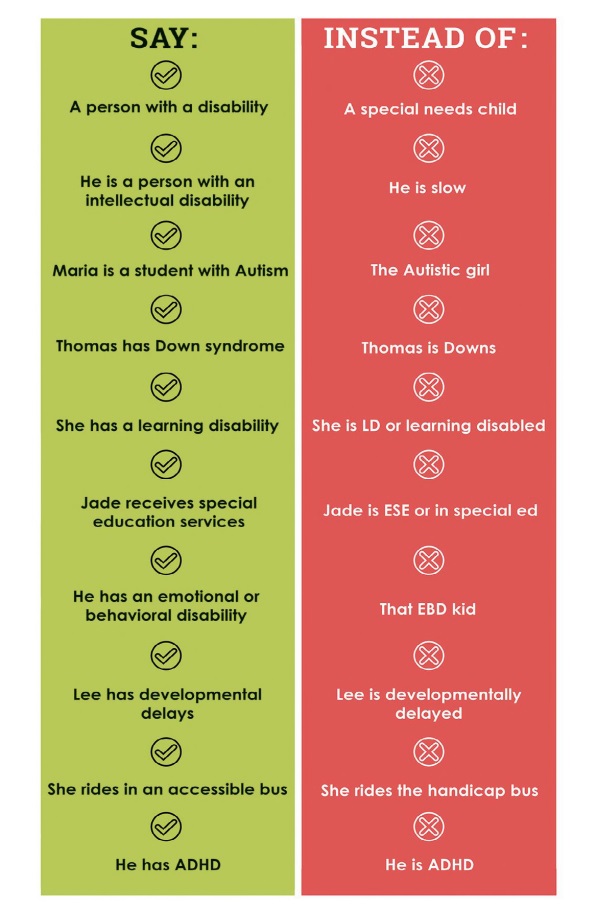She has a name, and she is human. So what, if she has a disability? She has thoughts, dreams, hopes, and aspirations. I share those with her, hoping that she will be smiling when she makes her mark on the world one day. She deserves to attend school and have the same fun experiences you and I had when we went. She is not a piece of paper. Not only that, she is your blood relative. As adults, we should be embarrassed that we cannot act with courteous manners and kind words, even half as well as she has endured your constant, repetitive negative thoughts to her face while experiencing voice loss and multiple chemical sensitivities. She gets straight A's in school, plays ten or more percussion instruments in the school band, and is published. If she was a liability, how could she accomplish so many wonderful things? This beautiful human before you is not a liability choosing to cause you harm. She is my amazing daughter and is growing up giving light and energy to the world."
Something tells me that you, the reader, could equally or maybe, with more emphasis, replace the above paragraph with one of your own, and it would fit inside this essay just as nicely with just as much if not more finesse.
By labeling the exceptional child with their human name and addressing concerns that might arise, after their name in the sentences, we make a statement to the world. We then state that the being in front of us has thoughts, emotions, intellect, character, and is recognized as a human. While the discussion is simplistic in nature, the "People First Respectful Language Modernization Act of 2006," created in the District of Columbia (odr.dc.gov/page/people-first-language) was created to address the need of referring to people with disabilities as humans and not as terminology which, in turn, took away their dehumanization. Basically, it states that the person is to be recognized as a person, and not the medical condition assigned to them. Likewise, we would not say, "Liability" but instead say, "a person who can cause a situation or be held responsibly liable."
Thus, it is important to be advocating for the proper way to address our exceptional children by using their given birth names. It should be recognized that they are a part of us; a part of society, and that they can and should intermingle with the rest of us, equally. So let us publicly shout to the world that our exceptional children are exceptional human beings. We can do this by telling others how:
- A financial value cannot be put on their worth,
- they are beautiful to look at and watch,
- they have the capacity to do something great in the world, such as become a sports person, an intellect, a president, an artist, or more,
- they are able to provide insight and wisdom into world events when we forget how to find to do it ourselves,
- they provide us with a positive mission in life,
- they are able to move about in the world independently in the manner that they feel is best and allows them to be at their best,
- they have amazing skills, talents, thoughts, and personalities that the world needs,
- they motivate us to be better than we are,
- they are capable of being leaders and caregivers to take care of us when we will need it (Because they have been through it.),
- they loudly demonstrate how miserable our world would be without them in it.
DUE RESPECT : PERSON FIRST LANGUAGE BASICS
Rather than using labels to define individuals, person-first language (PFL) puts the person before the condition or trait. PFL is about respect and dignity and focuses on the person, not the label.

Liability is a term incapable of human thought. We have often been told that our exceptional children are a liability, costly, and an inconvenience. Yet, without stopping, we advocate for them endlessly, so they can participate in life on the same level as all other children. We put them in our hearts with immense love. A love that will never end, because they are human, and all humans have the characteristic of independent thought. I may be disturbed that you think my child's name is "Liability" and yet I am comforted because I know that one day, everyone else will agree with me that she is funny, talented, smart, amazing, and will soon make her amazing mark on the world! •
ABOUT THE AUTHOR:
Laura George, EMDL (Emergency Management Disability Liaison) has a long history of providing education and advocacy towards the improvement of emergency preparedness planning of people with disabilities. In addition to being a presenter, she also authored Emergency Preparedness Plan: A Workbook for Caregivers, People with Disabilities, the Elderly and Others. She has a Bachelor'